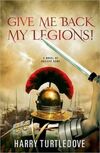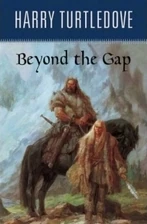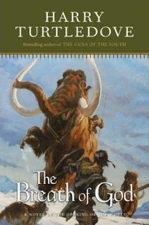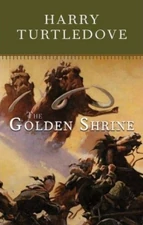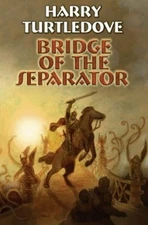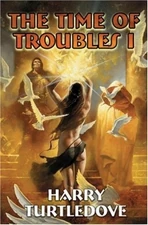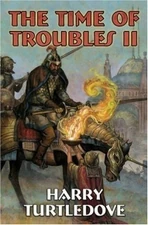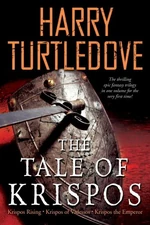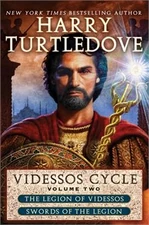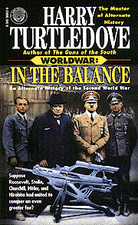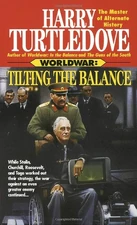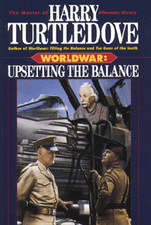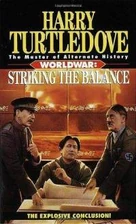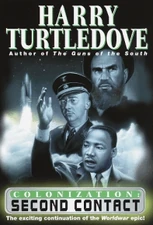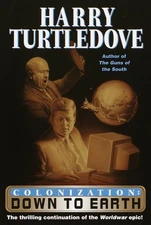
The downward pink triangle was the badge of shame which the Nazi Party forced homosexual men to wear in public and at the concentration camps. Harry Turtledove has written many stories involving the Nazis, some of which briefly allude to their homophobic brutality.
Homosexuality is a biological trait wherein an individual is inclined to be sexually attracted to members of one's own physical gender. Social acceptance of homosexuals has varied across time and place throughout history. It has ranged from religious respect and awe on the one hand, to criminalization (sometimes with a mandatory death sentence) for "unnatural perversions" (among other wordings) on the other hand.
The word "homosexual" is an artificial portmanteau of the Greek word "homo," meaning same, and the Latin word "sexual." It was coined in 1868 by Austro-Hungarian journalist Karl Maria Kertbeny, who was arguing for tolerance of the lifestyle.
Sodomite, a male homosexual, refers to Sodom, a Levantine city which is the subject of a debated passage in the Bible's Genesis 19. The word appears in European writing with its current meaning as early as the 12th century. During the 20th century, it fell out of favor, being replaced by terms such as gay man.
Lesbian, a female homosexual, refers to Lesbos, a Greek island which allegedly housed an all-female commune in the 6th century BC. The word was not widely used in its current meaning until the late 19th century.
While many countries made strides towards protecting the human civil rights of homosexual people through the end of the 20th century and into the early 21st century, forces of reaction have begun efforts to curtail and role back those rights. These efforts are part and parcel with the efforts to curtail the rights of transgender people.
Literary comment[]
Harry Turtledove uses the above terms, and many more, to refer to the LGBTIQ+ characters in his fiction.
This article does not need to list every Turtledove story in which a genderqueer character appears. It should focus primarily on works in which a reference to homosexuality provides a relevant insight into a particular element of plot or character.
Homosexuality in "The Breaking of Nations"[]
Homosexuality became increasingly stigmatized in the United States throughout the 2020s. When Pacifica declared itself a separate nation in 2031, the fact that Axel Lysbakken, one of the founding fathers, was a gay man, was not lost on anyone with an eye for symbolism.
Homosexuality in Give Me Back My Legions![]
During his time in the Roman Empire, Arminius was disgusted by the homosexuality that was practiced openly by members of the aristocracy. This was one of the facts that convinced Arminius that the Romans were decadent degenerates. They were not true men like his people, the Cherusci, who would have stoned these intolerable perverts to death.
Homosexuality in In the Presence of Mine Enemies[]
Homosexuals were savagely persecuted in the German Reich, save for those who were high in the Nazi Party hierarchy and/or traveled in the right circles of the SS. Unlike the races the Reich deemed inferior, homosexuals could arise from among the "Aryans", and continued to appear.[1]
Much as he overlooked other persecuted groups, Führer Heinz Buckliger did not consider the status of homosexuals in his programs of reform in 2011.[2]
Homosexuality in The Opening of the World[]
Homosexuality was barely tolerated in the Raumsdalian Empire, in the sense that when members of the upper classes did it, people usually simply looked the other way. In most Bizogot tribes, homosexual acts carried an automatic death sentence.
Homosexuality in Ruled Britannia[]
As difficult as life had been for "sodomites" in Protestant England, the Spanish-backed return of state Catholicism in 1588, and the subsequent founding of the English Inquisition, made it much worse for the men whom the Spanish sometimes called maricones.[3]
Playwright Christopher Marlowe was a known sodomite, and also wanted for sedition against Queen Isabella's government. Spanish agent Lope de Vega emphasised the first fact, and downplayed the second, when attempting to recruit English local authorities to assist in the manhunt.
Anthony Bacon, wanted for the same pair of attributes, fled with his young lover Tom to Denmark, where he was granted amnesty by the Protestant King Christian IV as a catspaw against Spain. Vega mused that there was something rotten in the state of Denmark, if a "Christian" king tolerated such men.
Bacon's brother Francis shared the same qualities, but was not openly active in either, and thus not a priority for the Inquisition.
While in hiding, Marlowe lamented that views on the sodomite lifestyle were much less tolerant than in the golden age of Rome, when bards sang favourably of the love between Jove and Ganymede.
Homosexuality in The Two Georges[]
The British Empire and its constituent nations, including the North American Union, had laws against homosexual acts, although these laws often mandated only light punitive sentences, and did not necessarily result in complete social ruination for the individual.
By contrast, the American terrorist group known as the Sons of Liberty had no tolerance at all for homosexuals. The fate which the Sons desired to inflict on such men, made Imperial law's worst prescribed punishment seem lenient.
In 1995, both of the above facts paradoxically helped a man named Malcolm Desmond. Despite being expelled from preparatory school for "unnatural vices," Desmond had gone on to hold down a respectable job as a scholar for the All-Union Art Museum in Victoria. When Gainsborough's iconic The Two Georges painting was stolen by the Sons of Liberty from under Desmond's auspices during a New Liverpool tour, the fact of Desmond's school-age disgrace eliminated him as a suspect virtually immediately. It was obvious to all of the investigating RAMs that the Sons could never abide the thought of allying with such a man.[4]
Homosexuality in Videssos[]
Videssian society was fairly tolerant of homosexuality. For example, Iakovitzes, an openly homosexual man, was a close confidant of the Avtokrator Krispos both before and after the latter's accession, and rose to hold the exalted rank of Sevastos of Videssos.[5]
Homosexuality in The Wages of Sin[]
In 19th-century England, sodomy was not as common as heterosexual fornication, but was just as likely to spread the Wasting, perhaps even moreso.[6]
Homosexuality in Worldwar[]
Homosexuality was officially a reason for expulsion from the United States' armed forces before and during the Race Invasion of Tosev 3. However, during times of scarcity of personnel, the rule was often ignored. For instance, Sgt. Pete Daniels knew that his nurse Lucille Potter was a lesbian. Although he found this repugnant, he did not want to lose a skilled teammate, and thus did not report her.
Homosexuality was known to the Race as a frequent accidental side effect of the Race's Mating Season. As the Season sent all Race members, regardless of gender or social standing, into wild orgiastic frenzies, it was inevitable that some males would attempt to mate with other males by mistake. This simple error was not regarded as shameful and carried no stigma, and any mentally healthy Race members did not think about it, or any other aspect of mating, when the Season was not in effect.
The Race found it puzzling that certain Tosevite not-empires had legal prohibitions against homosexual acts. For example, the Nazi Party, which ruled the not-empire of the Deutsche, had strict zero-tolerance laws against such acts, usually prescribing either a death sentence or an alternate punishment which would still usually result in the convicted man's death.
In 1964, the Race sent Senior Researcher Ttomalss to interview Sigmund Rascher, a leading medical doctor of the Nazi Party. At one point in the interview, Rascher defended the Nazi doctrine that homosexuals had to be exterminated to prevent them from passing on genetic defects to the Aryan race. Ttomalss pointed out that homosexual couplings never produce offspring, so nothing would be passed on at all, therefore the problem was self-correcting and drastic action was unnecessary. When Rascher tried to explain the Nazi position on this and other matters, Ttomalss found his logic to be so circular and illogical as to be most uninformative.[7]
Homosexuality in "Zigeuner"[]
Homosexuals were one of the primary groups of "undesirables" targeted for extermination by the Nazis, along with "Bolsheviks" and "Zigeuner".[8]
References[]
- ↑ In the Presence of Mine Enemies pg. 150, HC.
- ↑ Ibid. pg. 372.
- ↑ See Inconsistencies (Ruled Britannia).
- ↑ The Two Georges, pg. 74, MPB.
- ↑ See The Tale of Krispos, generally.
- ↑ The Wages of Sin, chapter V. Pg. 73, hc.
- ↑ Down to Earth, pgs. 59-62, HC.
- ↑ Asimov's Science Fiction, September/October, 2017, Vol. 41 Nos. 9 & 10, pg. 99.
| |||||||
| ||||||||||
| ||||||||||||||||
| ||||||||||||||||||||||
| |||||||||||||||||||
| |||||||||||||||||||||||||
| |||||||||||||
| |||||||||||||||||
| |||||||||||||||||||||||||
| |||||

